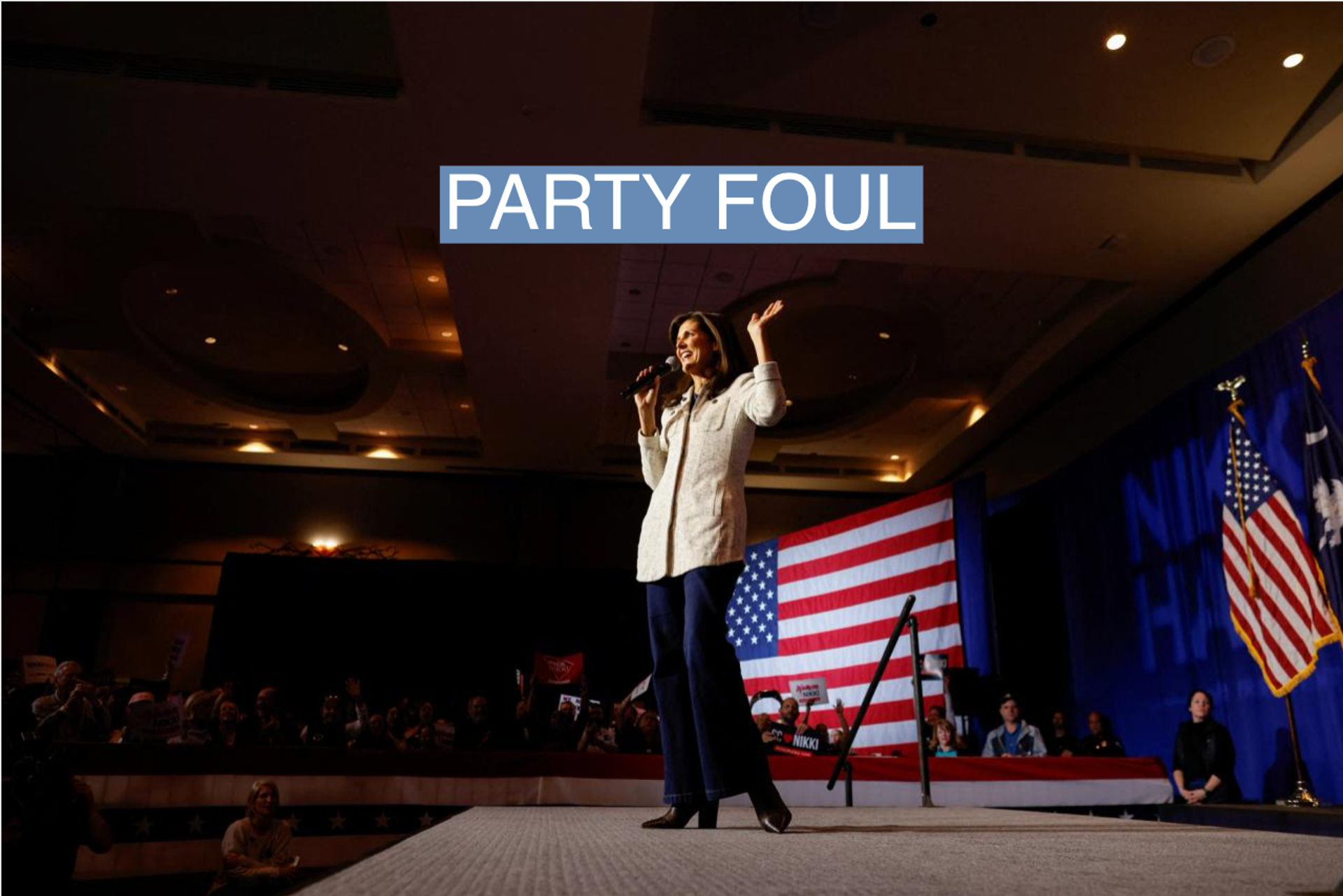The News
Republican National Committee chair Ronna McDaniel urged Nikki Haley to end her presidential bid on Wednesday, a change from the neutral stance she’d taken during the year-long primary.
“I’m looking at the map and the path going forward and I don’t see it for Nikki Haley,” McDaniel told Fox News. “I think she has run a great campaign, but I do think there is a message that is coming out from the voters, which is very clear: We need to unite around our eventual nominee, which is going to be Donald Trump. And we need to make sure we beat Joe Biden.”
McDaniel added an official party voice to a chorus of Trump supporters telling Haley to quit, as votes were still being tallied in New Hampshire. With more than 320,000 ballots counted, a record for a party presidential contest in the state, Haley had earned 43% of the vote to Trump’s 54%, and won nine of 22 available delegates. Trump fiercely attacked her in his victory speech and on social media, clearly upset with her refusal to drop out.
The former U.N. ambassador plowed ahead with her itinerary, more active than Trump’s. On Tuesday, she’d told supporters in New Hampshire that “millions of voters” would weigh in on the nomination over “the next two months.” On Wednesday, she remotely addressed Republicans in the Virgin Islands, where one delegate is up for grabs on Feb. 8, and headed home to South Carolina, where she’d scheduled campaign events and ad buys.
“Look, in 2016, the nomination fight went all the way up through the convention, and Trump won,” said Mark Harris, a strategist for the pro-Haley SFA Fund super PAC, on a Wednesday call with reporters.
The Republican National Committee has no power to end the primary, and its rules prohibit “in-kind aid” to a candidate before the nomination is secured. Their counterparts of the Democratic National Committee have similar rules.
In this article:
David’s view
At this extremely early date, the Republicans’ quandary looks a little like the one Democrats suffered through in 2016. Nearly every party leader and elected official to weigh in did so for one candidate — Hillary Clinton then, Donald Trump now. A challenger called for more debates and described a long fight for delegates — Bernie Sanders then, Nikki Haley now.
Haley is in a much weaker position than Sanders had been. The Vermont senator nearly won Iowa’s caucuses, and beat Clinton by a landslide in New Hampshire. But the official party apparatus didn’t try to end the race early, and a leak of internal party emails that showed donors and minor officials bitterly complaining about Sanders spurred then-DNC chair Debbie Wasserman Schultz to resign.
“Ironically, in that case, the louder someone was complaining, the further the person actually was from the power center of the Clinton campaign,” said Jeff Weaver, who managed the 2016 Sanders campaign and now advises Biden opponent Dean Phillips. “It was essentially croaking sycophants seeking to curry favor with the Clinton campaign.”
Weaver noted that the DNC, this year, has not told Phillips to end his campaign; it had “acted in other ways to disadvantage him.” Democrats are cautious, in part, because Clinton’s early wave of endorsements from voting DNC members, or “superdelegates,” were cited by both Trump and Sanders as proof that the fix was in.
“For all of those Bernie Sanders voters who will be left out in the cold by a rigged system of superdelegates, we welcome you with open arms,” Trump said in June 2016, as the Democratic primaries wound down and Sanders left the race.
Now it’s Haley attacking the “establishment” for lining up behind one candidate, accusing them of trying to end the race before millions of Republicans and independents have voted. (Crossover voting by independents was another tactic that Trump endorsed, before he turned against it.)
At his final New Hampshire stops, Trump pointed out that Nevada Republicans would vote for him before the race got to South Carolina; that was made certain when the state party decided that delegates would be awarded in a caucus, not a state-run primary. Haley filed for the primary, while Trump, and several candidates who’ve since quit, filed for the caucus.
“South Carolina voters don’t want a coronation, they want an election,” she said in Concord last night. “We’re going to give ’em one.”
The View From Democrats
The Biden campaign sees a GOP race that’s mostly over. The president said on Tuesday that Trump’s nomination was a “clear” and looming reality. On a post-primary call with reporters, Biden campaign manager Julie Chavez Rodriguez said that Republicans were “uniting behind an extreme and losing front-runner,” and that Trump was on the “precipice” of the nomination.
As for his own primary, the Biden campaign ignored Phillips after its write-in win yesterday, DNC members voted to endorse President Joe Biden last year, and party chair Jaime Harrison has campaigned extensively for him in the upcoming South Carolina primary. But Harrison has not urged Phillips or Marianne Williamson to abandon their campaigns. Phillips has accused several state parties of “disenfranchising” voters, by putting only Biden on their primary ballots, but the national DNC has not urged him to quit.
Notable
- For ABC News, Lalee Ibssa and Soo Rin Kim recap the ways Trump is telling Haley to give up: “Who the hell was the imposter that went up on the stage before and, like, claimed a victory?”
- In Politico, Steven Shepard explains why Republicans don’t think Haley can win in South Carolina and extend the race: “South Carolina’s electorate is far more conservative and more evangelical” than New Hampshire’s.
